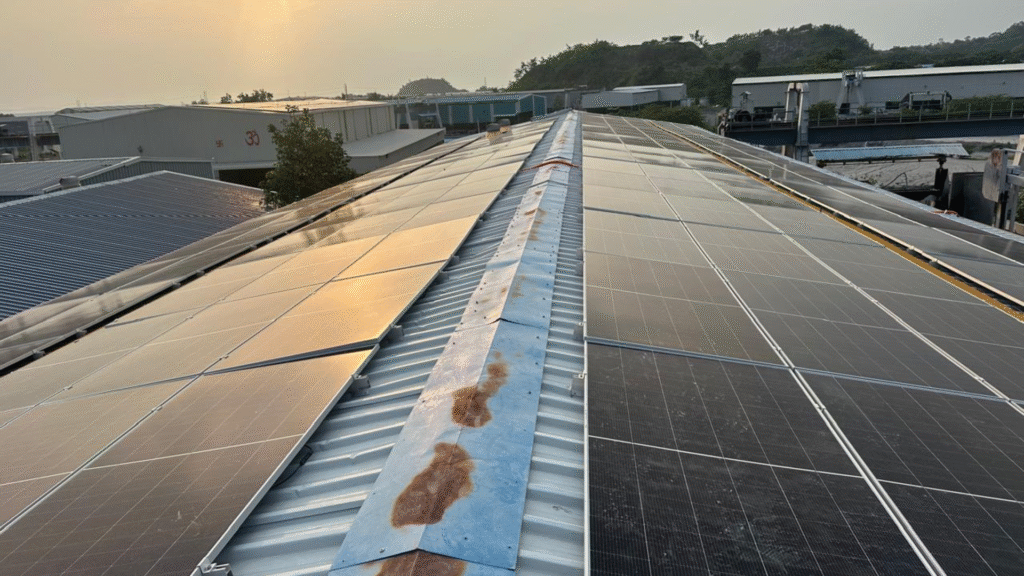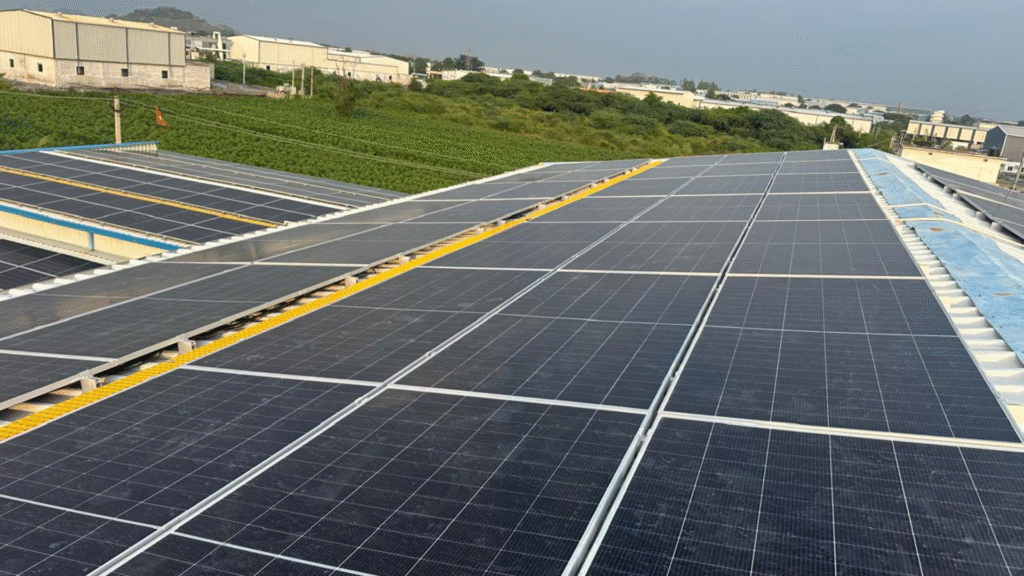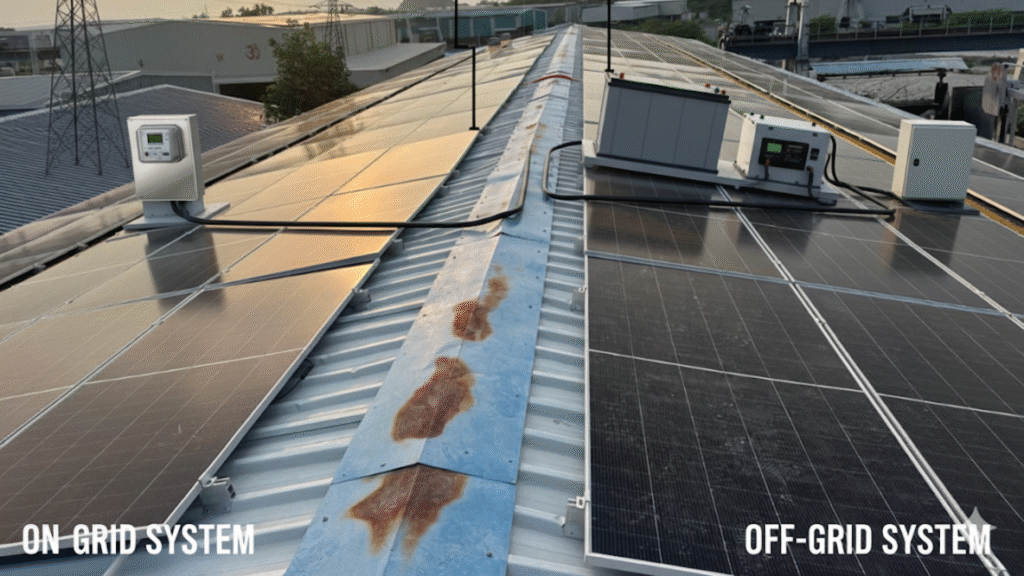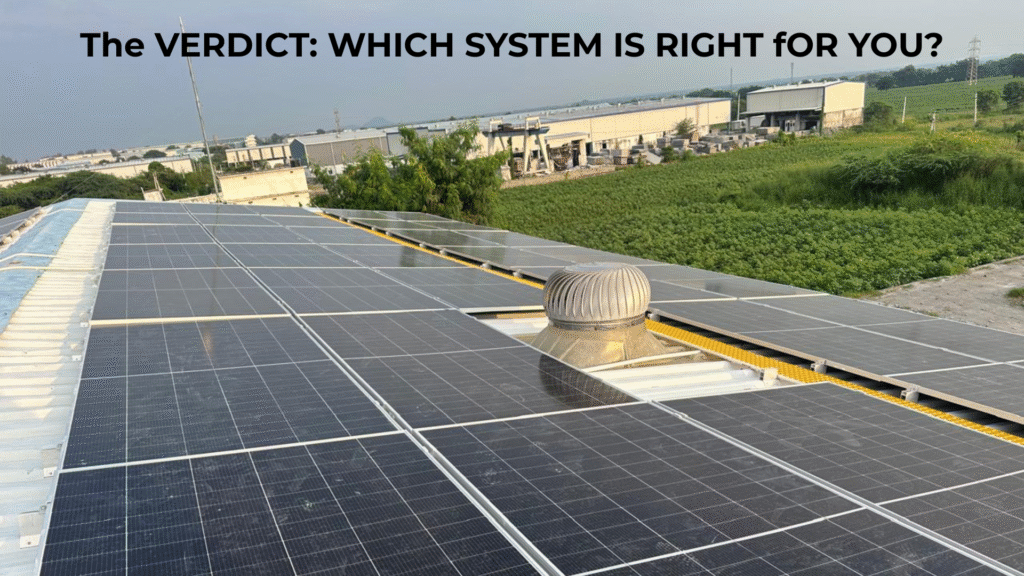Choosing the right solar system for your home is a major decision, and with the rise in solar installation in Jaipur, you’re faced with two main options: on-grid and off-grid. While both harness the power of the sun, their features, costs, and benefits are fundamentally different. This comprehensive guide will help you understand the core differences and decide which system is the perfect fit for your lifestyle and energy needs.
Understanding On-Grid Solar Installation in Jaipur

An on-grid solar system, also known as a grid-tied system, is the most common and popular choice for homeowners in urban and semi-urban areas like Jaipur. This system is designed to work in close partnership with the local electricity grid.
How On-Grid Solar Installation in Jaipur Works
The process is a seamless dance between your solar panels and the city’s power grid.
- Generation: Your solar panels, typically mounted on your roof, capture sunlight and convert it into DC (direct current) electricity.
- Conversion: A crucial device called an inverter then converts this DC electricity into AC (alternating current), which is the type of power used by all your home appliances.
- Consumption: The AC electricity generated is first used to power your home.
- Exporting Excess Power: This is where the on-grid system truly shines. If your panels produce more electricity than you are currently using, the surplus power is automatically sent back to the main utility grid.
- Net Metering: A special bi-directional meter records the amount of electricity you export. Thanks to the Rajasthan government’s net metering policy, you receive credit for this power, which is then used to offset the electricity you draw from the grid at night or on cloudy days.
The result? A drastic reduction, or even elimination, of your monthly electricity bill.
Key Advantages of On-Grid Solar
- Cost-Effective: On-grid systems are generally cheaper to install because they do not require expensive battery banks.
- Financial Benefits: The net metering policy allows you to earn credit for surplus power, providing a quicker return on your investment.
- Low Maintenance: With no batteries to maintain or replace, the upkeep for these systems is minimal.
- Highly Efficient: The system is built for maximum efficiency as it uses power directly or feeds it back to the grid, avoiding energy loss that can occur during battery storage.
The Main Disadvantage
- No Power During Outages: This is the most significant drawback. For the safety of utility workers, your on-grid system will automatically shut down during a power cut. It cannot provide you with electricity when the main grid is off.
Understanding Off-Grid Solar Systems

An off-grid solar system is the ideal solution for complete energy independence. It operates entirely on its own, with no connection to the main electricity grid. This makes it perfect for remote properties or those who want total self-reliance.
How it Works: A Self-Sufficient Power Plant
- Generation & Storage: Your solar panels generate electricity, which is then sent to a battery bank for storage. The batteries are the heart of an off-grid system, ensuring you have power even when the sun isn’t shining.
- Power Consumption: An inverter pulls power from the batteries to supply AC electricity to your home.
- Uninterrupted Power: The stored energy is used to power your home during the night, on cloudy days, or, most importantly, during a power outage.
Key Advantages of Off-Grid Solar
- Complete Energy Independence: You are no longer at the mercy of the utility company or fluctuating electricity rates.
- Reliable Power During Outages: Your lights and appliances will stay on, no matter what happens to the city’s grid.
- Ideal for Remote Locations: If your property is too far or too expensive to connect to the main grid, an off-grid system is often the only viable solution.
The Main Disadvantages
- Higher Initial Cost: The upfront investment is significantly higher due to the cost of the battery bank, which can constitute a large portion of the total system cost.
- Battery Maintenance and Replacement: Batteries have a limited lifespan and will need to be replaced, adding to the long-term cost and maintenance efforts.
- Limited Power: You can only use as much electricity as your battery bank can store. For high-power consumption, you would need a very large and expensive battery system.
On-Grid vs Off-Grid Solar Installation in Jaipur: Quick Comparison Table

| Feature | On-Grid Solar System | Off-Grid Solar System |
| Grid Connection | Yes | No (Completely Independent) |
| Primary Goal | Reduce electricity bills | Achieve energy independence |
| Main Components | Solar Panels, Inverter, Net Meter | Solar Panels, Inverter, Battery Bank, Charge Controller |
| Initial Cost | Lower (No batteries) | Higher (Requires expensive batteries) |
| Power During Outage | No | Yes (From batteries) |
| Maintenance | Low (Minimal) | Higher (Battery upkeep) |
| Ideal For | Urban and semi-urban homes in Jaipur | Remote locations or areas with frequent, long power cuts |
Frequently Asked Questions (FAQ)
Q1: What is a hybrid solar system?
A hybrid solar system is the best of both worlds. It’s connected to the grid but also includes a battery bank. This allows you to use your solar power, send excess to the grid for credit, and also have power stored in batteries for use during a power outage.
Q2: How much does a solar installation in Jaipur cost?
The cost of a solar installation in Jaipur varies widely based on the system size (kW), whether it’s on-grid or off-grid, and the brand of components used. An on-grid system is typically more affordable than a comparable off-grid system due to the absence of batteries. A professional assessment can give you an accurate quote.
Q3: What is the lifespan of a solar system?
Solar panels typically come with a 25-year performance warranty. Inverters generally last 10-15 years, while batteries in off-grid systems may need to be replaced every 5-15 years, depending on the type and usage.
Q4: Are there government subsidies for solar systems in Jaipur?
Yes, the government offers subsidies for solar panel installations. The subsidy amount depends on the system size. These subsidies significantly reduce the initial cost, making solar power even more accessible.
The Verdict: Which System is Right for You?

For most homeowners in Jaipur, where the electricity grid is generally reliable, an on-grid solar system is the most sensible and profitable investment. It allows you to take full advantage of government incentives and net metering, providing the quickest and most significant return on your investment.
However, if you prioritize uninterrupted power and are willing to pay the extra cost for a battery backup, you have two options:
- A pure off-grid system if you’re in a remote area.
- A hybrid solar system, which combines the benefits of both by staying connected to the grid while also having a battery backup for power cuts. This is a great middle-ground solution for those who want savings and security.
Ready to make a smart choice for a solar installation in Jaipur? The best way forward is to connect with a trusted local solar provider. They can perform a detailed assessment of your home’s energy consumption, roof space, and specific needs to design a solar solution that is not just reliable, but also perfect for your future.


